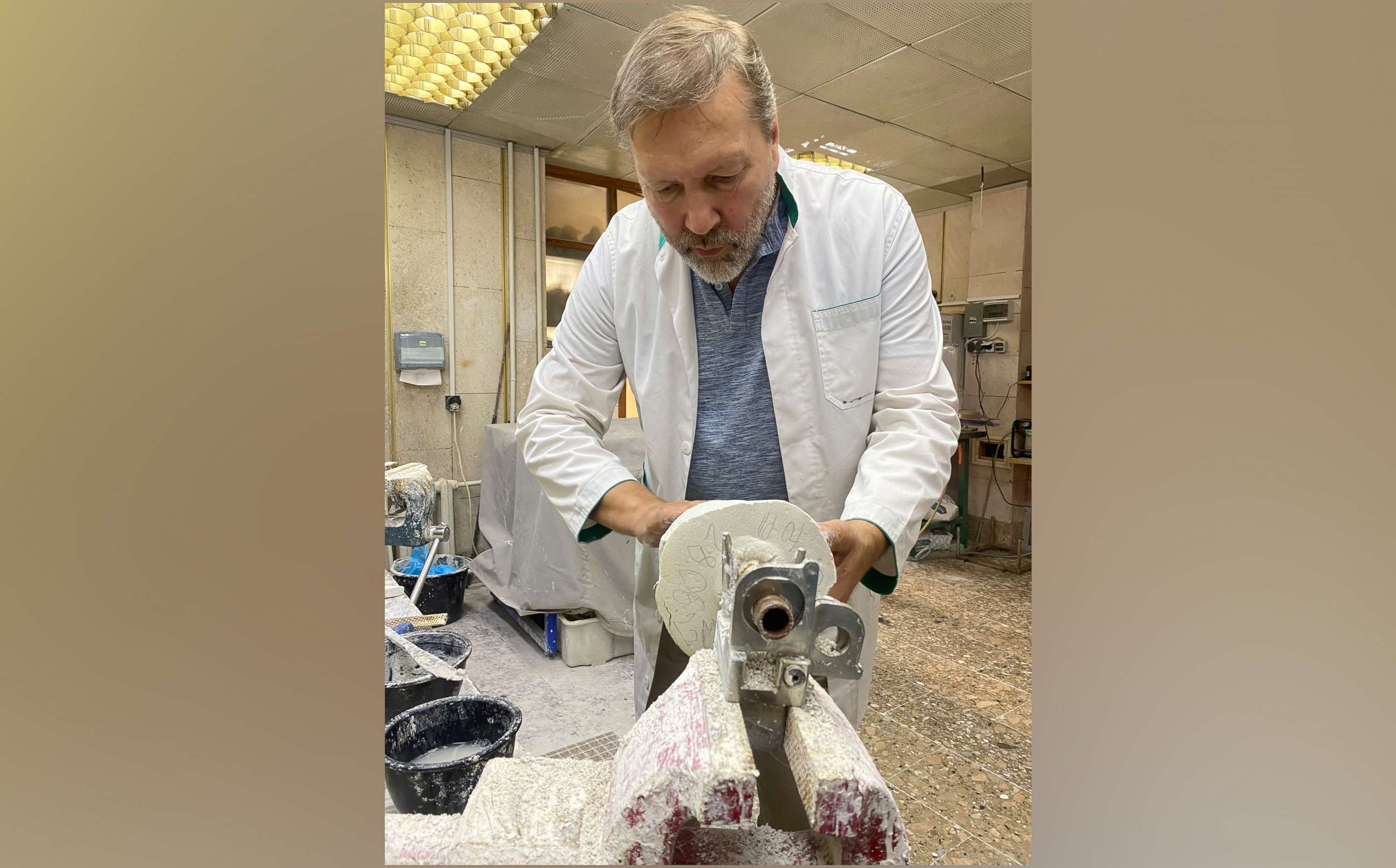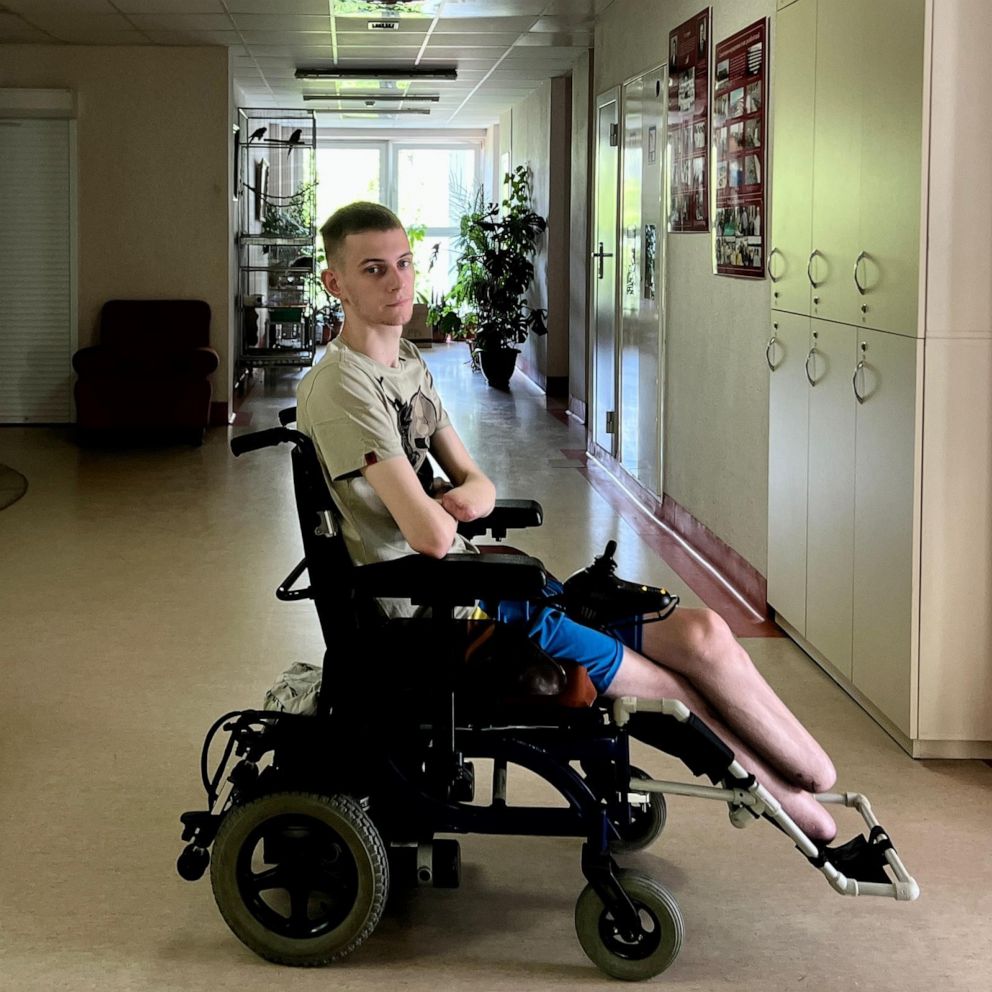Demand for artificial limbs surges in Ukraine
The supply of prosthetic components has reduced since the war with Russia began.
KYIV -- One of Ukraine’s leading medical experts on developing prosthetic limbs for amputees says there has been a dramatic surge in demand for artificial arms and legs since Russia invaded Ukraine.
Dr. Oleksandr Stetsenko told ABC News that financial support or donations of prosthetic parts are needed from abroad to meet the increased demand.
External support, he said, is vital so that people have the chance to continue with their lives.
“With good prosthetics people can come back to life again.”
There is currently no official figure for how many people in Ukraine have undergone surgery to remove limbs because of injuries sustained from the war but Dr. Stetsenko estimates that around 500 people have had limbs amputated since the end of February with the majority of those cases being soldiers and around a fifth being civilians.
While the number of patients in Ukraine needing artificial limbs has increased, the domestic supply of components to make prosthetic arms and legs has reduced.

That is because a third of the companies which were previously producing components in Ukraine are now located in territory which has recently been occupied by Russian forces or in areas near to the frontline, according to Ukraine’s Ministry of Health.
A Director at the Ministry, Oleksandra Mashkevych, confirmed that Ukraine is no longer able “to cover all of the demand relating to artificial limbs.”
She told ABC News that children who need artificial limbs are sent abroad to Europe or to the United States and that around 20 children in Ukraine are thought to have had limbs amputated since the start of the war in February.
Mashkevych explained that in cases where patients need prosthetic limbs, the total treatment can last up to six months and financial support from the European Union has been critical to ensure the needs of patients and their families who get transferred to countries such as Germany and Poland can be met.
One of Dr. Stetsenko’s patients, 19-year-old Daniil Melnyk, who is currently undergoing intensive rehabilitation with two new artificial legs at a hospital in Kyiv, epitomizes the impact of the war on individual Ukrainians as well as his country’s broader fighting spirit.
Daniil was still a cadet at Ukraine’s military academy when Russia launched its full-scale invasion in late February and, just days later, he joined the Ukrainian army’s 14th Brigade and was soon serving on the frontline defending the Ukrainian capital in the initial phase of the war.
But on March 7, his unit was traveling in a Ukrainian military convoy near Kyiv when they came under Russian fire and Melnyk sustained horrific shrapnel wounds to his hands and legs.

Despite being badly wounded he survived for two days before being captured by Russian troops. He was treated at a Russian field hospital and later transferred to military hospitals in Russia before returning to Ukraine after being exchanged in a prisoner swap.
Melnyk's left hand was amputated when he was held and treated in Russia and both of his legs were later amputated when he returned to Ukraine.
Melnyk, however, with two prosthetic legs, is impressively mobile and upbeat about his future.
“Life is very precious” he told ABC News. “Being alive is enough for me. I can move. I feel great.”
The 19-year-old dreams about using his steely sprit to help others and wants to become a military psychologist.
To underline the importance of good quality prosthetics for patients such as Melnyk, Dr Oleksandr Stetsenko joked that it is like “the difference between a good car, and a bad car.”
“People with good prosthetics can have a family and they can do any job.”




